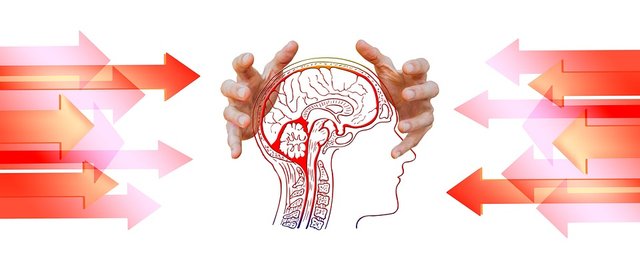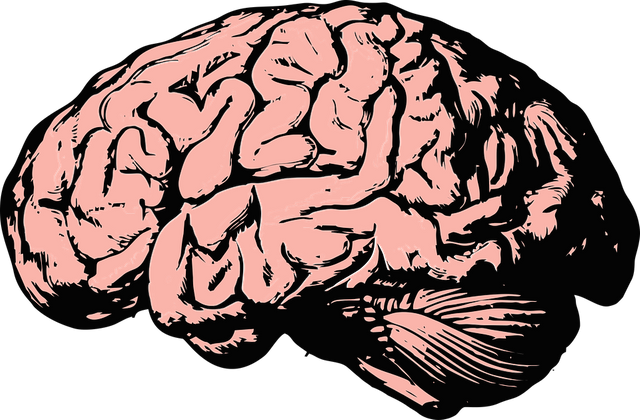Difference between brain and mind
Difference between brain and mind
Mind
The mind is a concept that reflects the functions and functions of the brain. Functions of the brain include functions of personality synthesis, reasoning and reasoning, as well as information retention in long-term or short-term memory, information analysis, and emotional reactions. Some other organisms, such as animals, possess a mind, but the term mind is generally called the human mind only.
Theories of the Mind
There are many theories that are based on the study of the mind, science is looking at the mind and what it is and how it does the work, and began to think and research in the mind and what it is since ancient times too: that since the era of philosophers Plato and Aristotle, and since science was shallow at that time, Theories on the study of the relationship between mind, religion, mind and spirit as well, while theories in modern times based on the study of the mind and its relationship with psychology.
The size of the mind
The human mind is in a continuous growth; the human mind in continuous growth at the age of 5 is different from that of the 50-year-old, and the maximum brain size is 1300 centimeters cubic.
Brain
The brain is one of the parts of the nervous system, the most important part of it, and the brain is composed of two hemispheres, a bridge between the nerves, the brain occupies 2% of the whole body, and the brain the bulk of the body food; The brain, by its very nature, is a sensitive part and is heavily influenced by external influences, but it is surrounded by the skull, a very strong part that protects the brain from danger.
The importance of external cortex
The external cortex of the brain has several parts, each part has a specific function as follows:
1- Frontal lobe: Its function is to contain concentrates of voluntary human movements, and part of the centers of speech and memory centers as well.
2- Parietal lobe: It has many functions, including control of sensory functions, for example the ability to sense the degree and quantity of heat, and also feeling cold, and unusual pressure and pain.
3- The occipital lobe: It has a very important function of controlling vision and visual sense as well.
4- The temporal lobe, and its function is to control the sense of smell and sense of taste and hearing.
The left brain controls the ability to understand words, perceive numbers, think logically, and the ability to analyze and arrange. The right part controls the ability of the body to be consistent, to know colors and to be imaginative.
By Nisrin Ich



@arrihan i like your post your post very nice
There is also this one:
Our brain is located within our bodies but not our mind. Our mind is external, it's everything we look at.
Fascinating. I think there is something more than our physiological brains. Like some kind of universal consciousness or shared intelligence. What do you think?
This wonderful post has received a bellyrub 11.03 % upvote from @bellyrub. Please make sure to vote for my pops as a witness @zeartul,Here
For more information, click here!!!!
The Minnowhelper team is still looking for investors (Minimum 10 SP), if you are interested in this, read the conditions of how to invest click here!!!
This post has received a 9.96 % upvote from @buildawhale thanks to: @arrihan. Send at least 1 SBD to @buildawhale with a post link in the memo field for a portion of the next vote.
To support our daily curation initiative, please vote on my owner, @themarkymark, as a Steem Witness
Mind is related to brain. Most people do not find any difference between the two words mind and brain. Most scientists and thinkers believe that the brain and the mind are one and cannot be separated. Most of the time these two words are used interchangeably. While brain is considered to be a physical thing, mind is considered to be mental.
This view is a rather new one, philosopher have argued about the mind-body problem for centuries. The brain is seen as something physical, while the mind is seen as something non-physical. Because of this distinction the mind always has been attributed with a lot of metaphysical qualities, e.g. being endless.
Today, where reductinism is the predominat paradigm, these terms are indeed used almost synonymously, which in my opinion is a little counter-productive, since it pushes the term "mind" even more away from its classical metaphysical meaning into a more esoteric domain.
good approach but necessary to improve more. i advise you Eric R. Kandell's publications. especially the book with the name "principles of neural sciences"
This post has received a 26.17 % upvote from @boomerang thanks to: @arrihan
@boomerang distributes 100% of the SBD and up to 80% of the Curation Rewards to STEEM POWER Delegators. If you want to bid for votes or want to delegate SP please read the @boomerang whitepaper.
img credz: pixabay.com
Nice, you got a 38.0% @askquestion upgoat, thanks to @arrihan
It consists of $4.72 vote and $1.57 curation
Want a boost? Minnowbooster's got your back!
The @OriginalWorks bot has determined this post by @arrihan to be original material and upvoted(1.5%) it!
To call @OriginalWorks, simply reply to any post with @originalworks or !originalworks in your message!